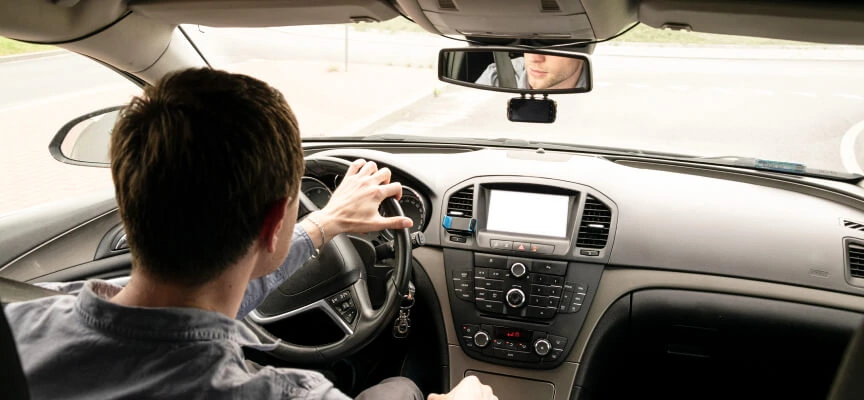
When you call to get a quote for auto insurance in Georgia, you might be surprised by the number of options available. If you’re worried about your budget, you might tell the agent to just give you the minimum limits Georgia requires and skip the rest.
That might allow you to get cheap auto insurance, but there are a lot of circumstances where cutting corners on your car insurance will cost you money, not save it.
What additional coverage can you get, and what value does it have for you? Read this article before something happens and you don’t have the coverage you need.
The Minimum State Requirements in Georgia
In Georgia, the insurance you need to drive legally is very minimal. You’ll need liability coverage, which only pays for other people’s injuries and property damage if you cause an accident.
Liability coverage comes with set limits. If you cause more damage than your insurance will cover, you have to pay for the rest. That can be a scary thought with how expensive medical bills and cars are today!
Here are Georgia’s minimum requirements:
- Bodily injury liability: $25,000 per person and $50,000 per accident
- Property damage liability: $25,000 per accident
That might sound like a lot of money, but when you think about how many cars cost $30,000 or more, and how expensive hospital bills are, you start to realize it’s not.
That’s why additional coverage can be so helpful!
Choosing More Liability Coverage
You’ve been driving safely since you were a teen, so you might not think you need higher liability. However, it only takes one mistake to find yourself in a serious accident.
Get a quote with higher limits to see what it would cost. You might be surprised at how affordable it is!
While you might pay an additional premium, the amount is worth it when you consider the alternative. If you’re in an accident where you’re found even partly at fault, you’re legally responsible for damages. These can quickly exceed the minimum state limits, and you’ll have to pay the rest yourself.
This might mean losing your retirement savings, having your wages garnished, or being in significant debt for many years. That’s a heavy price to pay for saving a few dollars a month in insurance premiums.
‘Full’ Coverage: Do You Need Comprehensive and Collision?

After your liability limits, the next consideration is whether you need comprehensive and collision coverage. These two coverages together are often referred to as “full coverage.” Both pay to repair your vehicle, although in different circumstances.
Without these additional coverages, you’ll have to pay for repairs to your car by yourself. Body damage is very expensive, and it’s easy to find yourself in a financial bind if you’re not protected.
Collision Coverage
As you might have noticed, the minimum state requirements in Georgia don’t include any insurance to fix your vehicle if you cause an accident. That’s where collision coverage comes in. Collision will help you repair your vehicle, up to the value of the car, after you pay the deductible.
For instance, if your car is worth $10,000 but repairs would be $12,000, the vehicle is considered totaled, and you’ll receive $10,000 minus your deductible. The insurance company keeps the vehicle. If repairs are only $3,000, you’ll receive $3,000 minus the deductible to fix the car.
A higher deductible makes collision coverage less expensive, but you also need to choose a deductible you can afford so that you can repair your vehicle. Auto shops are not allowed to “cover your deductible” by inflating the repair estimate — that’s insurance fraud, and you and the mechanic can go to jail.
Having collision coverage is a good idea if your car is newer, and it may be required by the bank if you have a loan on the vehicle.
Comprehensive Coverage
If your vehicle is damaged by theft, vandalism, hail damage, hitting an animal, or other non-accident perils, you’ll want to get the car repaired so you can get back on the road. Your insurance can help if you have comprehensive coverage.
Like collision, you’ll need to choose a deductible that you can afford both in terms of premium and in terms of cost if you need to fix the vehicle. Get a quote with a few different deductibles. Often you can afford a lower deductible on comprehensive more easily than collision.
Comprehensive coverage is generally not required, although it’s a good idea if your vehicle is newer. Your bank may require it if you have a loan, however.
Other Types of Additional Coverage
After liability, comprehensive, and collision, you might be offered other additional coverage that can help you if your car breaks down, needs to be in the shop awhile due to an accident, and more.
Road Service Coverage
Most insurance companies have an option for you to get roadside assistance as part of your car insurance. This helps cover towing if the car breaks down and may also have coverage for lockouts and even running out of gas.
Without road service, you could have to pay out-of-pocket for a tow, which can cost over $100. The cost is per mile, and it adds up fast!
Make sure you carefully read the road service information so you know what’s covered and what limits are in place. That way, you can use this coverage wisely when you need it.
Rental Reimbursement
If your car is in the shop due to a covered claim, you still need to get to work and live your everyday life. That can be very difficult if you don’t have a second vehicle. Rental reimbursement is insurance coverage that provides a rental vehicle for a specific number of days per claim.
The specifics of what kind of car you can rent and how many days it lasts vary depending on the insurance company, so be sure you ask questions and fully understand this coverage. It can be a lifesaver to not have to pay for a rental when your car is being repaired.